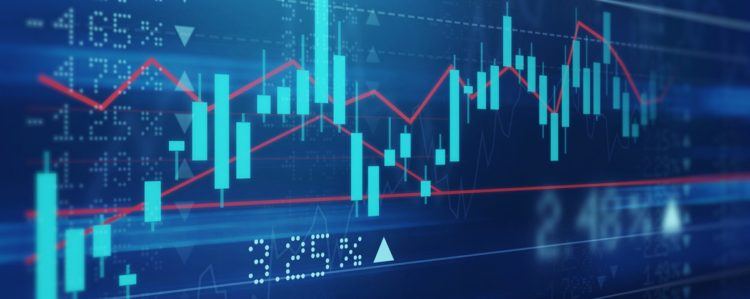The factors driving higher inflation are likely to remain in place for a long time, with a shallow recession looking more or less “inevitable” in the UK, according to a market analyst.
Craig Erlam, Senior Market Analyst at foreign exchange trading OANDA, has followed markets full time for around 10 years, seven of which have been at his current role. He spoke to the FSF about the likelihood of a recession, why he thinks inflationary pressures will remain high and what this means for equities such as ESG.
Markets remain in limbo
Already trading at a significant discount from where they started the year, Craig says that markets remain “in limbo” while it remains unclear about how severe and long-lasting inflation will be.
Craig believes “we’re around the peak of where inflation will reach”, but it’s not just about how high the headline figure gets – it is also about how long it remains at high levels.
He argues that the scale of monetary tightening has exceeded expectations, with even a 50 basis point-hike a few months ago looking “unfathomable” from the Federal Reserve.
The bulk of the pain may already be priced into markets, but he expects any recovery in markets will be U-shaped rather than V-shaped.
“It might be a slow recovery; it’s not going to be like the pandemic recovery phase.”
China could have more lockdowns due to their zero Covid policy, while energy prices will be high for a while, perhaps for several years.
“As long as natural gas is being used as a weapon, unless the energy market can normalise itself and reduce Russian influence prices will stay high.”
For oil prices to fall, Craig argues that the best hope is probably a recession.
“The oil market is imbalanced: supply can’t keep up with demand. The economy bounced back faster than producers expected.”
He highlights years of low oil prices and compressed profits failing to incentivise investment in the industry. The shale industry became highly indebted and looked to consolidate.
“All of this hit at the same time,” says Craig, noting that Russia’s invasion of Ukraine took place at a moment of maximum leverage.
While Craig notes that stock valuations were high prior to the pandemic, he denies that this was a bubble.
“Price to earning ratios were not necessarily historically high, but were elevated and at the higher end. This was backed up by enormous amount of liquidity.”
He says it was overall “a pretty good environment”, performing well across several different measures of economic health that were perhaps taken for granted: low unemployment, ok wage growth, very low inflation.
The issues now are far greater, he says, with the perfect storm of supply shortages, high oil prices, and an artificially tight labour market.
Implications for asset managers
“The market has now undergone a dramatic correction. If you were holding prior to that there are enormous losses to make up,” says Craig.
Due to over a decade of low interest rates, equities have long been the only game in town for returns, he argues. However, this will change as government bond yields become higher.
“Not too long ago, back in 2017 and 2018, the growth stocks were irresistible.
“[The attitude was] we don’t need you to be making profits now, because the growth of the company is number one.
“That’s not going to be tolerated in the same way.”
In the short term, Craig expects a more defensive approach to dominate due to the greater alternatives to equities available.
“There is going to be more focus on value stocks and what areas have a good track record,” he says.
For example, he thinks Amazon and Apple, both of which are down by large amounts since the beginning of the year will come back into fashion quicker.
Craig expects ESG stocks to remain in fashion, but with perhaps a different driver behind their popularity.
Previously, he says, pressure to move towards ESG stocks had been mounting for a number of years. However, previously the pressure came from an environmental perspective whereas increasingly green stocks are viewed as part of energy security strategies.
Craig doesn’t think that the market conditions will drive consumers away from investments per se and towards, for example, savings accounts.
“It may make them slightly more risk averse, with more of a move into passive funds. It might also influence how much people have to invest, but more on the retail side.”
Ultimately he doesn’t see a fundamental long-term collapse of faith in the markets.
Craig does believe a recession in the UK is now “inevitable” due to the severe cost of living crisis and less of a buffer to shield against it than other countries.
“The Bank of England threw in the towel about three months ago,” he adds, saying that the strategy is essentially to ease into a recession.
In Europe he argues a recession is highly probable, and still likely in the US.
“I don’t think we’re heading for a 2008 scenario.
“I think we’re probably heading for a mild recession. I think at some point the markets are going to bounce back and confidence will bounce back to where the valuations are far more attractive than they were six months, three months ago.
“If you look at the Amazons and Apples of the world, these are mostly trading at steep discounts now. These are companies that have a proven track record.”

